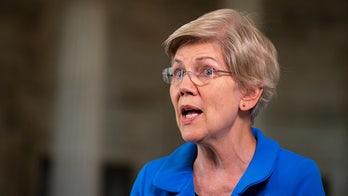U.S. business and labor groups announced agreement Thursday on a key priority for an immigration overhaul bill: creating a new system to bring lower-skilled workers to the country.
The Chamber of Commerce and the AFL-CIO, a collection of 57 unions, reached consensus after weeks of closed-doors negotiations they were conducting at the request of Sens. Charles Schumer, a Democrat, and Lindsey Graham, a Republican.
Both senators are involved in crafting an immigration deal to help address issues that include the estimated 11 million illegal immigrants in the U.S.
Business and labor have long been at odds over any temporary worker program, with business groups wanting more workers and labor groups concerned about protections for American workers. The issue helped sink the last congressional attempt at rewriting the nation's immigration laws, in 2007.
The principles include agreement on the need for a mechanism to let businesses more easily hire foreign workers when Americans aren't available to fill jobs. This will require a new kind of worker visa program that does not keep all workers in a permanent temporary status, the groups said in a joint news release.
They also said they see the need for a new professional bureau housed within a federal executive agency and tasked with informing Congress and the public about labor market needs and shortages. That addresses a key demand from the labor side for a more transparent and data-driven process about worker needs.
But the joint statement from the chamber and labor groups made clear that more work needs to be done to finalize their deal so that it can be included in a comprehensive immigration bill.
"We have found common ground in several important areas and have committed to continue to work together and with members of Congress to enact legislation that will solve our current problems in a lasting manner," the statement said.
"We are now in the middle -- not the end -- of this process."
Even so, Thursday's agreement represents a significant step in talks that some in Congress gave little chance of success.




